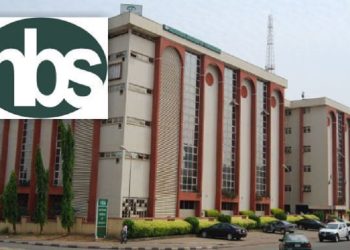The Bola Ahmed Tinubu-led federal government is exploring a novel approach to bolster the value of the naira, leveraging dividends earned from the Nigeria Liquefied Natural Gas (NLNG) Limited. This strategy aims to mitigate the economic challenges arising from the naira’s devaluation.
The government plans to employ a process called “securitization,” which entails using expected future income from the NLNG as collateral for immediate borrowing. This infusion of funds into the national economy seeks to address the adverse consequences triggered by the naira’s depreciation.
The devaluation of the naira has led to multiple economic challenges, including increased import costs and a significant inflation rate of 26.72% recorded in September 2023.
According to recent reports, the government anticipates receiving $7 billion through a consortium led by Standard Chartered Bank. The goal is to increase the availability of dollars by injecting them into the market, ultimately influencing the naira/dollar exchange rate to reach approximately N800 to a dollar.
This plan involves using the entire $7 billion to fulfill existing foreign exchange (FX) forward obligations, thereby relieving pressure on the naira, enhancing liquidity, and potentially bolstering the currency’s value.
While this initiative carries the potential for stabilizing the currency and providing immediate financial aid to the economy, it is essential to consider the associated risks and factors:
1. Impact on Gas Industry: NLNG plays a significant role in Nigeria’s gas industry, and implementing this strategy could affect gas production if it interferes with the company’s operations or available resources.
2. Mismanagement Risks: Misusing the borrowed funds by the Nigerian government could result in a lack of capital for future projects, diminishing investor confidence and impacting overall economic development.
Understanding the precise implications of this strategy on NLNG and the gas industry is essential, and it remains crucial to monitor the plan’s implementation and its effects on NLNG’s operations and resources.
It is imperative to consider the broader implications on the economy and energy sector and ensure the prudent utilization of borrowed resources to support the country’s economic development.
The success of this economic plan hinges on various factors, including effective implementation, transparency, and sound management. Therefore, the government’s ability to make informed decisions and address potential consequences will be pivotal in shaping the nation’s economic landscape.
In the words of oil and gas analyst Etulan Adu, “The key aspect is how the funds will be utilized,” highlighting the significance of responsible financial management in achieving successful outcomes.
The urgency of reinvigorating Nigeria’s oil and gas sector and addressing declining gas production and upstream investment becomes increasingly evident. Action steps, transparency, and commitment are necessary to steer the sector toward sustainable growth and economic stability.
While the government explores this securitization strategy, the focus must remain on long-term growth, fiscal responsibility, and the pursuit of energy self-sufficiency to meet the nation’s needs.











